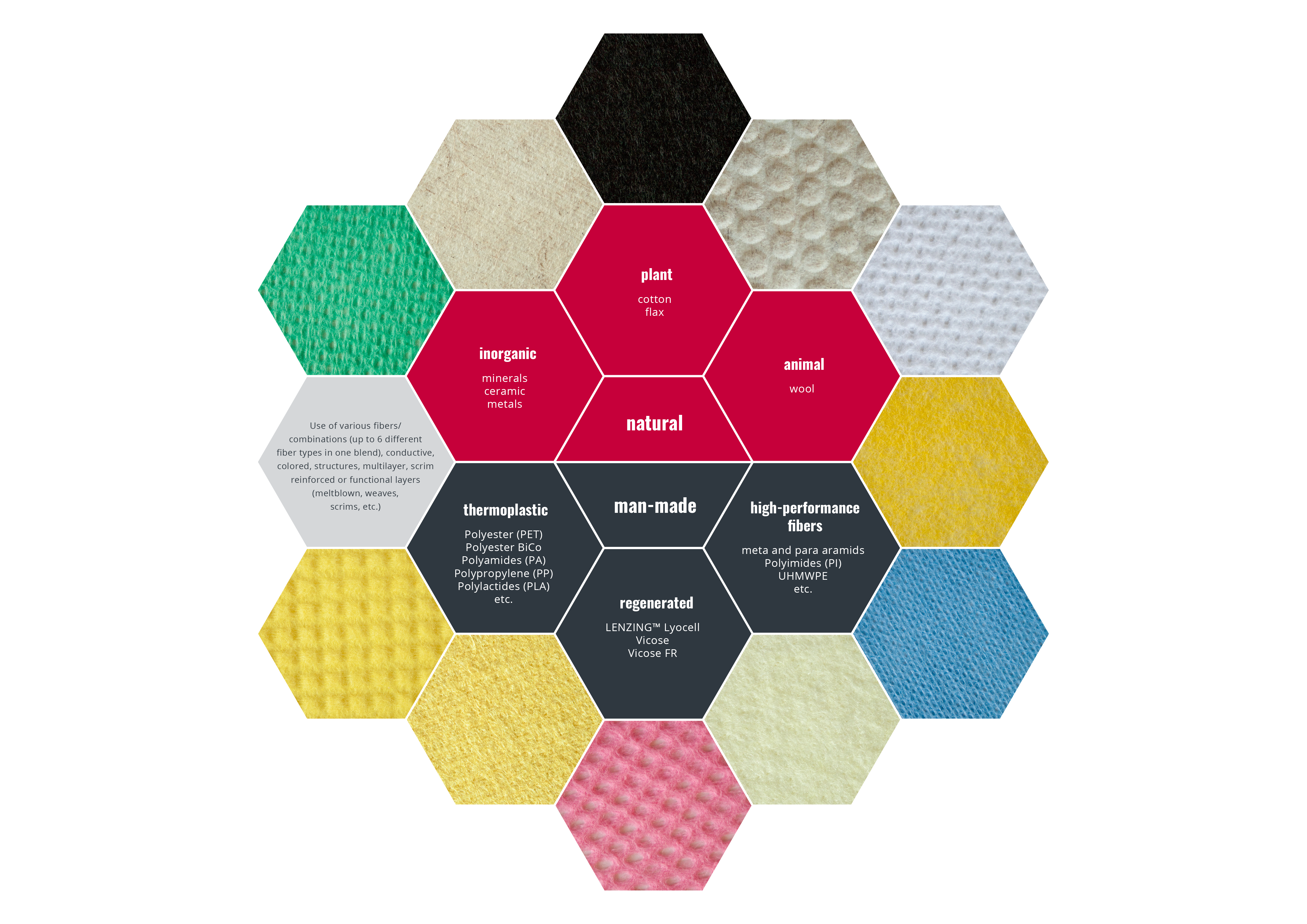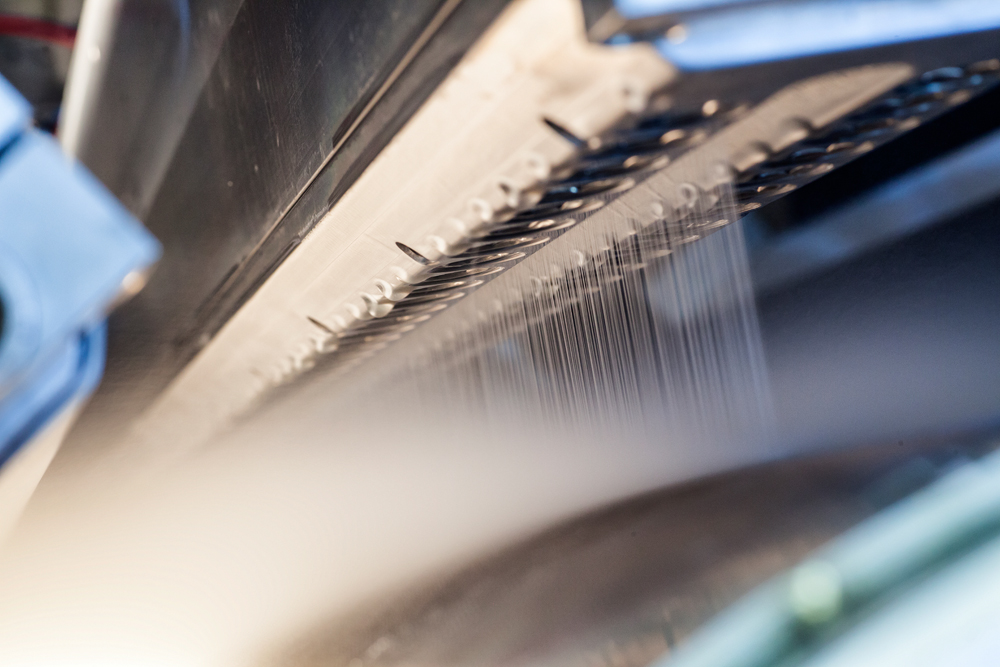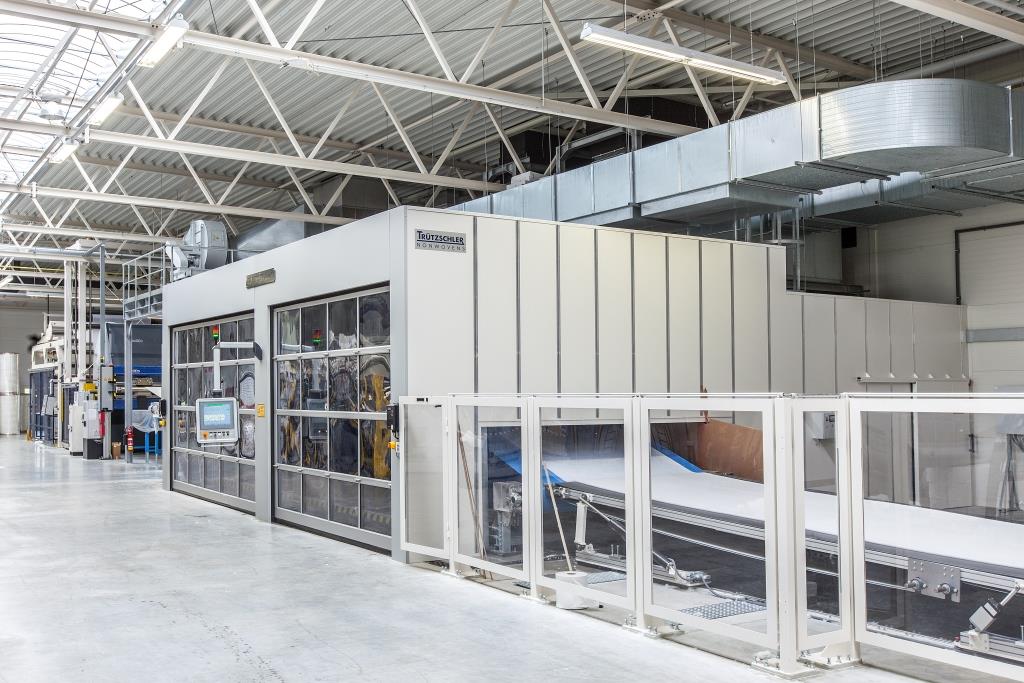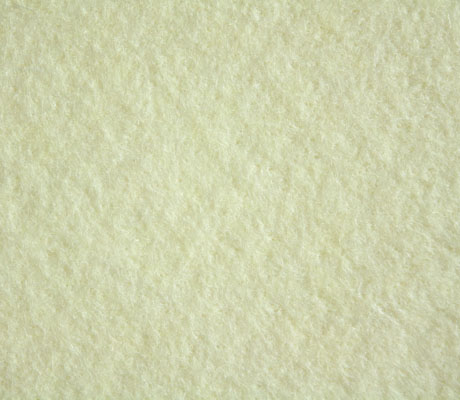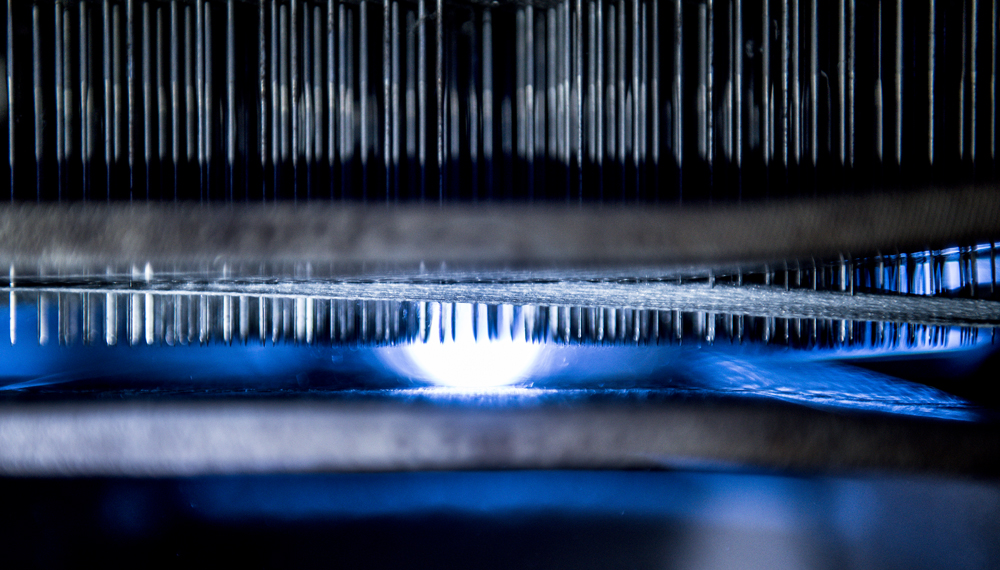Process and Aftertreatment Capabilities
Technologies That Inspire
Fiber Marks the Beginning
Norafin produces high quality spunlaced or needlepunched special nonwovens.
The beginning of the respective process technology is the fiber preparation. Norafin processes a wide variety of staple fibers in various lengths (20-70 mm) and gauges (1-15 Dtex) as well as in different surface weights between 15 g/m² and 1.000 g/m². These are homogenized via opening and mixing devices and fed as a fiber mat for carding. The carding machines open the fiber tufts through a variety of clothed rolls to single fibers and form a uniform fibrous web. Thereafter, Norafin follows two different processing routes to the finished nonwoven.
Processing
Thanks to our own flexible production technologies, we are able to process a large variety of staple fibers. New fibers can be tested and verified in cooperation with our Research & Development department.
The natural and/or renewable fibres that we process include, among others:
- Viscose, lyocell, flax, hemp, cotton, sheep's wool, PLA and many more.
The range of synthetic fibres we use is diverse. We are specialists in the processing of high-performance fibres, such as
- Meta- and para-aramids, polyimides, UHMWPE and many more.
Do you have any questions about the fibres we use? Get in touch with us!
Spunlace Technology (Hydroentanglement)
At this point in time two production lines in Germany and one in the USA are solidifying the carded fibrous web via water jets. Through the second carding machine, we are able to produce a four-layered material construction in one process, instead of only two. By means of high pressure, a homogeneous entangled textile fabric (nonwoven fabric) is created. This nonwoven can be embossed or perforated via different structured drums.
As a result of the wet processing, the solidified material contains a lot of moisture and is then dried in a perforated drum dryer.
Process opportunities with spunlace
- basis weight range: 15 – 750 g/m²
- width upon request: max. 2.80 m
- Capacity: 6.000 tons/year
Product options:
- flat, apertured and structured (3D) materials
- spunlace lamination
- multilayered and double sided
- reinforcement through scrims, weaves, etc.
- antistatic or conductive
- different colors, according to RAL
Needlepunch Technology
An autonomous needle-punch line is processing the fibrous web ‘dry‘. The fibrous web provided by the carding machine is mechanically strengthened via vertically moving needles. In a second process, more layers can be added. A thermal fixation in the dryer is possible if required.
Process opportunities with needlepunch
- basis weight range: 60 - 1,000 g/m²
- width upon request: max. 2.40 m
- Capacity: 1,000 tons/year
Product options:
- reinforcement through scrims, weaves, etc.
- antistatic or conductive
- different colors, according to RAL
Internal Aftertreatment Capabilities
Norafin has an autonomous finishing line with a stenter frame. This allows us to provide our technical textiles, as well as other supplied textiles with the following features:
- water and oil repellent
- flame-retardant
- reinforcement/stiffening
- antistatic
- insect protection
- high-visibility
- hydrophilic
- surface modifications (anti-slip, smooth, etc.)
- foam application (stable, unstable)
For these aftertreatment options, we have the following technologies available:
The nonwovens are fully impregnated, and the desired function is imparted throughout the material.
A variety of functional coatings, including stable or unstable foams, can be applied to one side of the material. Likewise, single color patterns, logos, or images can be applied using rotary screen aftertreatment line printing technology.
Low add-on chemical treatments can be applied to one side of the material using kiss-roll application. It is possible to finish each side of the nonwoven to impart a different function.
Two materials are bonded together during lamination using a variety of adhesives (nonwovens + nonwovens/fabric + nonwovens/nonwovens + film).
- calendering
- quilting





